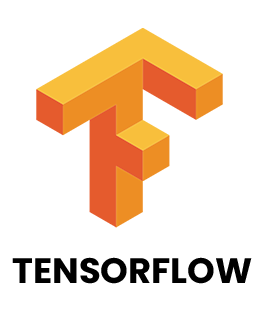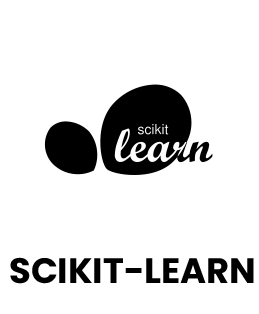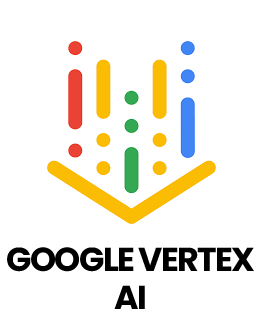An Elaborate Overview of NLP
A subfield of computational linguistics and artificial intelligence called "natural language processing" (NLP) strives to make it possible for computers to comprehend, analyze, and produce human language in meaningful and contextual ways. NLP bridging the gap between human communication and machine perception, enabling natural and intuitive interactions between people and computers. NLP procedures include NER, sentiment analysis, text categorization, machine translation, question-answering, and text summarization. Various methodologies, including deep learning models like transformers, statistical methods, and rule-based procedures, are used in NLP applications such as chatbots, virtual assistants, sentiment analysis, information retrieval, machine translation, and medical text analysis. Deep learning has revolutionized NLP, leading to the development of complex language models like BERT, GPT, and transformers for superior results across various tasks.
Additional Info
Career Scope of NLP
NLP offers diverse career opportunities in various industries, with promising career potential as NLP technology advances and language processing applications demand increases.
- Growing Demand: There is a growing demand for NLP professionals as a consequence of the widespread use of AI-powered applications and language-driven technologies.
- Applications Based on Language: NLP professionals create chatbots, virtual assistants, and sentiment analysis tools, among other language-based applications.
- Data science and AI roles: In AI and Data science roles, NLP experts are in high demand as they can work on projects involving language, sentiment analysis, chatbots, and NLP systems.
- Software Development: Technology firms and software development companies hire NLP specialists to create voice recognition systems, virtual assistants, and language-based applications.
- Language Technology Startups: Language processing and NLP-based startups are expanding, providing exceptional chances for NLP specialists to develop and contribute.
- Product Development: NLP experts are employed by businesses to create language-focused products, such as sentiment analysis platforms, speech recognition software, and language translation tools.
- Ethical AI and Bias Mitigation: To solve moral issues with language models and guarantee equity and inclusion in NLP applications, specialists in NLP are required.
Important Skill Sets Used by NLP Professionals
Professionals in NLP need a broad skill set to work efficiently on language-related tasks and create cutting-edge language processing solutions. Professionals that use NLP often need to have the following skill sets:
- For analyzing and comprehending the structure, syntax, and semantics of human language, it is fundamental to have a solid understanding of linguistics' basic concepts.
- Building and optimizing NLP models requires expertise in machine learning methods, such as supervised and unsupervised learning, and deep learning frameworks.
- For the implementation of diverse language processing tasks, familiarity with well-known NLP libraries and tools such as NLTK, spaCy, Transformers, and Gensim, among others, is required.
- understanding of topic-modeling instruments, such as Latent Dirichlet Allocation (LDA), for discovering hidden themes and topics in a corpus of documents.
- To resolve complicated language processing difficulties, NLP professionals must demonstrate outstanding analytical and problem-solving capabilities.
- Successful NLP initiatives require efficient cross-functional teamwork from individuals in these fields as well as linguists, data scientists, and software developers.
- Possibilities of establishing and annotating datasets for training NLP models, guaranteeing that the data is appropriately categorized for the purpose of supervised learning.
- For understanding the background and demands of NLP initiatives, domain-specific knowledge (such as that associated with healthcare, finance, or the law) may be beneficial.
Organizational Benefits of NLP
Implementing NLP (Natural Language Processing) technologies into numerous facets of an organization's operations can be quite beneficial. The following are some of the main NLP organizational benefits:
- Enhanced Client Experience: Chatbots and virtual assistants with NLP capabilities can respond to client questions quickly and accurately, enhancing engagement and customer service.
- Automated Data Extraction: NLP can automate data extraction and minimize manual work by extracting pertinent information from papers, emails, and other textual sources.
- Personalization: NLP enables businesses to cater information and recommendations based on customer preferences and behavior, thereby personalizing the user experience.
- Analysis of Text Data: Text data from a range of sources, such as surveys and consumer feedback, can be analyzed using NLP to glean insightful information and guide corporate strategy.
- Automated Content Generation: For automated content creation and summarization, natural language processing (NLP) models can produce human-like writing.
- Decreased workload: NLP decreases the workload of human operators by automating language processing operations allowing them to concentrate on higher-level tasks.
- Cost and time savings: NLP automates procedures that would otherwise require an extensive amount of human work, saving companies money and time.
Roles and responsibilities of NLP professionals
- Create and build NLP models, algorithms, and approaches for specific language processing tasks, such as sentiment analysis, text categorization, named entity recognition, and machine translation.
- Software, websites, and applications should all have NLP functionality. Develop NLP-based tools such as chatbots, virtual assistants, and recommendation engines.
- oversee the development and application of NLP-based products and solutions. Together with cross-functional teams, define the project's objectives and constraints.
- Conduct NLP research, publish what you discover in scholarly journals, and recommend fresh approaches and models for enhancing the field of work.
- Identify emerging trends, patterns, and insights in linguistic data that can offer insightful data for business decision-making.
- To address difficulties particular to a given industry or domain, apply NLP approaches to such industries or domains, such as healthcare, finance, legal, or social media.
- Utilize NLP approaches to analyze significant amounts of textual data, carry out text mining, and derive insights. To comprehend patterns and trends in language data, create prediction models.
- Apply machine learning methodologies to NLP difficulties, construct and enhance language models, and adjust previously taught models for particular tasks.
Tools used for NLP
The field of NLP (Natural Language Processing) is broad, and there are many tools and libraries available to help with different NLP tasks. Technologies provide pre-built resources for processing spoken language.
- NLTK (Natural Language Toolkit): NLTK is a popular Python NLP library for tasks like tokenization, part-of-speech tagging, and sentiment analysis, offering various tools and resources.
- Hugging Face Transformers: Hugging Face Transformers library offers pre-trained transformer models like BERT, GPT, and RoBERTa for named entity recognition, sentiment analysis, and text production.
- TensorFlow NLP: TensorFlow, Google's deep learning framework, is used by the NLP library, which offers a variety of tools and models for NLP applications.
- Word2Vec: Word2Vec is an NLP method that embeds words as dense vectors in a continuous vector space, capturing semantic links between words and enabling similar representations with related meanings.
- Polyglot: A multilingual NLP (Natural Language Processing) package called Polyglot offers assistance for handling and analyzing text in several languages.
- CoreNLP: It offers NLP tools for linguistic analysis of text data, designed in Java but also offers interfaces and wrappers for Python and other programming languages.
- VADER: VADER analyzes tone and feeling in social media posts, testimonials, and online comments, handling emoticons, slang, and informal language. It is widely used for analyzing these types of content.
Show More








































